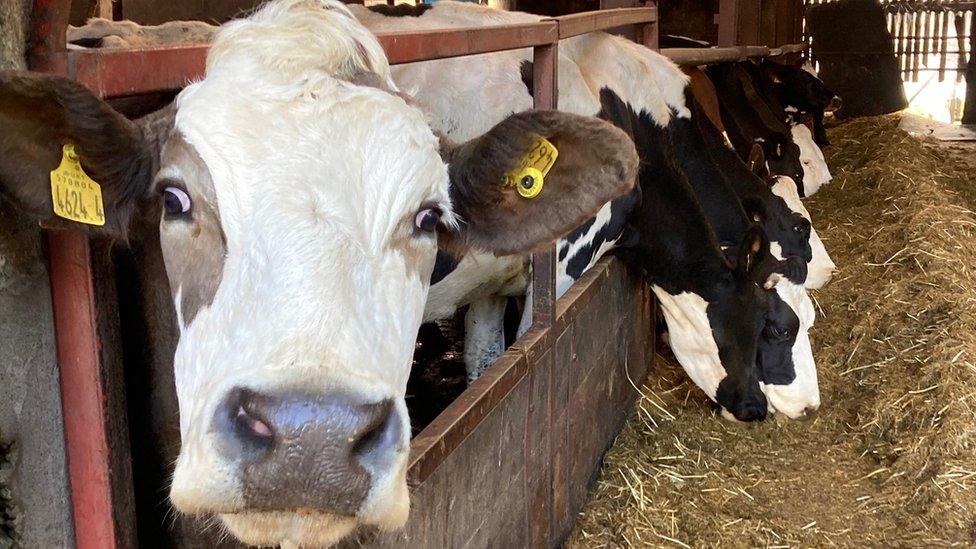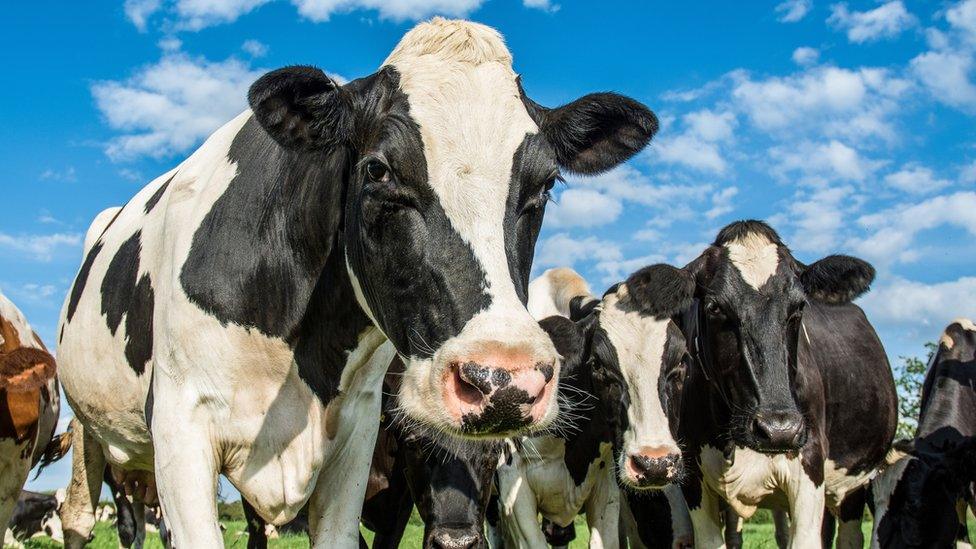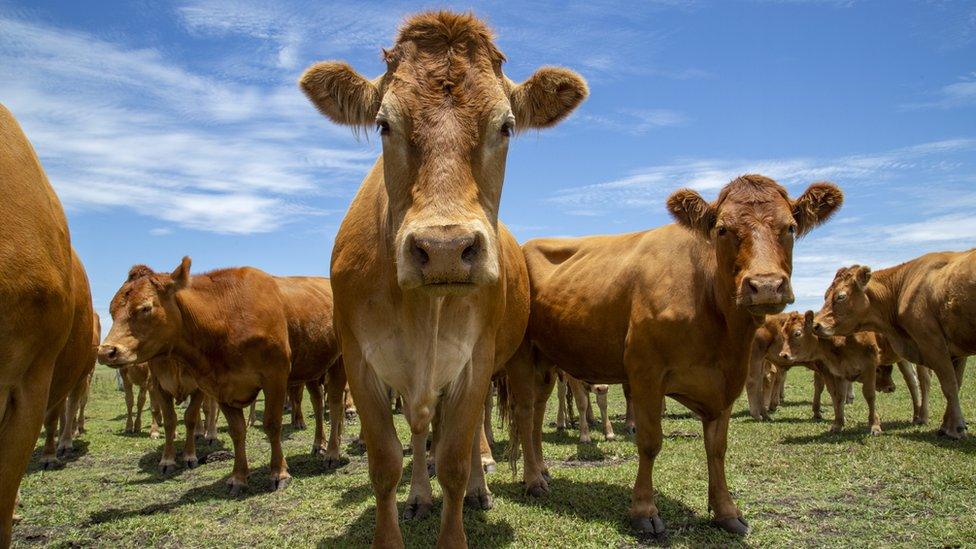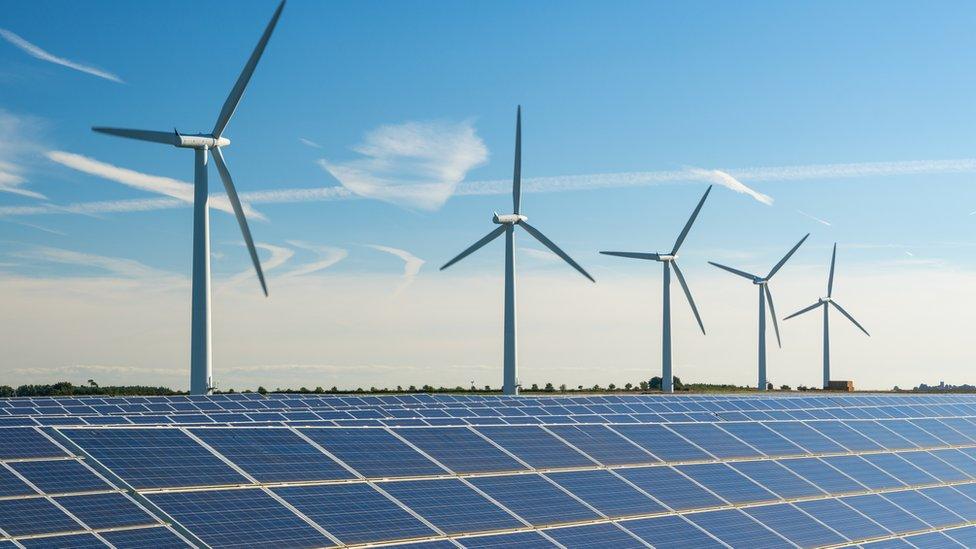Climate law: NI Assembly's law needs 'major step-up for delivery'
- Published

Agriculture is the biggest emitter of greenhouse gas emissions in Northern Ireland
The UK's climate watchdog says Stormont's new climate law shows commendable ambition but will need "a major step-up" to be delivered.
The law includes a target for net zero greenhouse gas emissions by 2050.
That is far beyond the 82% reduction which had been recommended by the Climate Change Committee (CCC)
The CCC says the net zero target will "lose credibility" if the focus does not shift quickly to implementation and delivery.
In February, the assembly voted for a net zero target, saying it would bring Northern Ireland in line with other parts of the UK.
The final version of the law included an amendment which means that the reduction in methane, a potent greenhouse gas mostly produced by agriculture, will be limited to 46% compared to 1990 levels.
The CCC says that will make reaching net zero even more difficult.
In a letter, external to the agriculture and environment minister, Edwin Poots, it said: "This limit removes a key option in our most ambitious 'Tailwinds' scenario to go even further in reducing livestock emissions.
"Since most other sectors reach nearly zero emissions, bridging the gap from our 82% pathway to net zero can only be achieved through additional greenhouse gas removals."
The CCC has previously said those greenhouse gas removals would mean significant spending on carbon capture and storage technology.
The letter also lays out what the progress towards net zero will mean in practice.

The letter was addressed to Northern Ireland Agriculture and Environment Minister Edwin Poots
On transport, it will have to mean that by the end of this decade, or 2032 at the latest, every new car and van sold in Northern Ireland should be zero-emission.
This implies substantial investment to expand the electric vehicle charging infrastructure.
On energy generation, it says there will need to be "deployment of new renewable electricity generation at scale, with appropriate energy storage and decarbonised back-up solutions".
On home heating, it says that by 2028, all heating appliances being installed should be zero-carbon in properties off the gas grid.
For those properties on the gas grid, all heating appliances should be zero-carbon by 2033.
It adds that this is "unlikely to be compatible with further extension to the Northern Ireland gas grid".
Related topics
- Published9 March 2022

- Published1 March 2022

- Published1 February 2022
